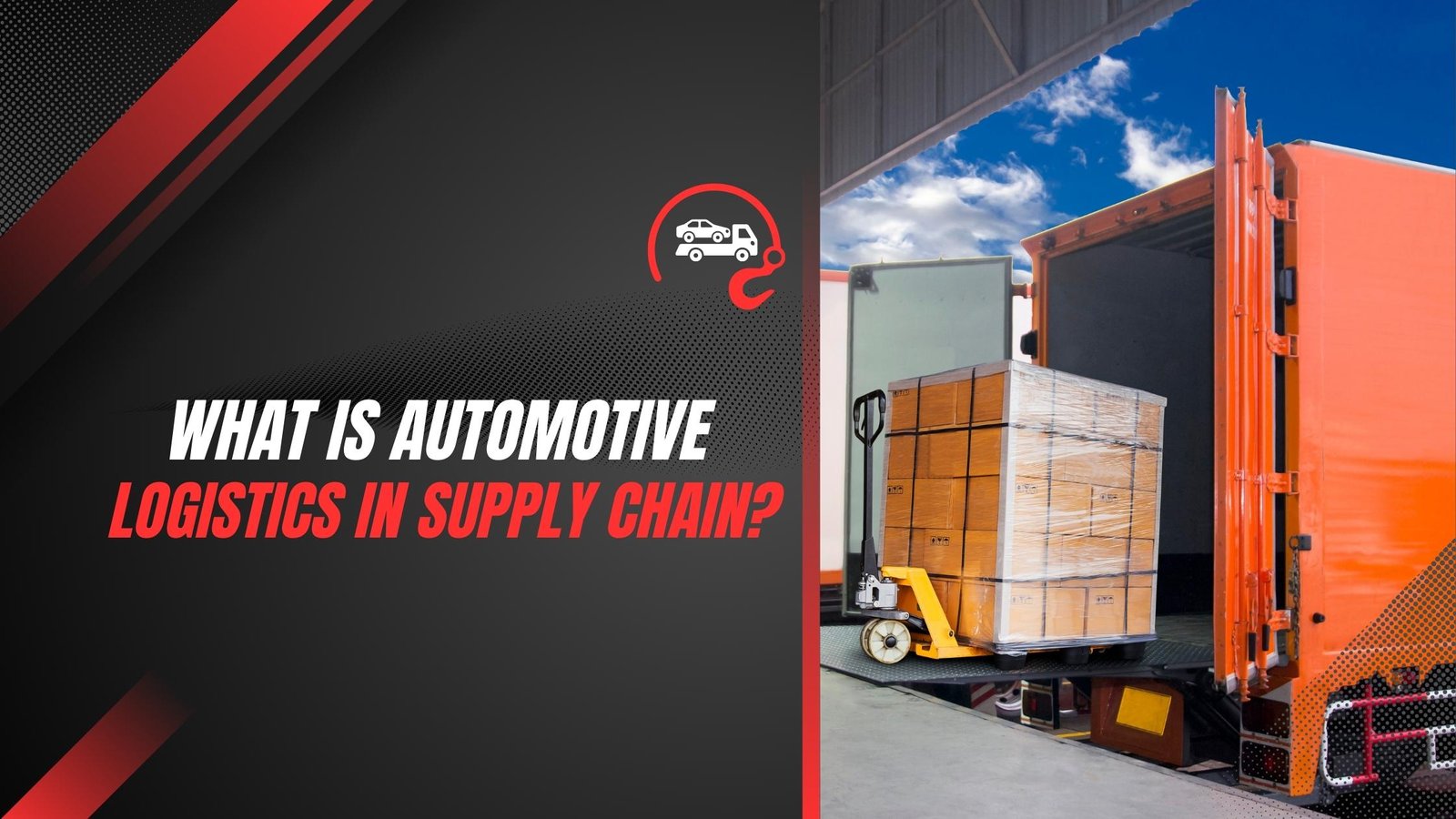What is Automotive Logistics in Supply Chain?


Welcome to the world of automotive logistics! The term logistics refers to the planning, organization, implementation, and control of the movement of goods from one point to another. In the automotive industry, logistics plays a vital role in the supply chain, where it involves various processes that ensure the smooth flow of auto parts, vehicles, and related materials from suppliers to manufacturers and dealers.
What is Automotive Logistics?
Automotive logistics is a key element in the auto industry, responsible for managing the flow of materials, information, and finances from the point of origin to the point of consumption. This involves coordinating the movement of goods within and across borders, as well as ensuring timely delivery and cost-efficiency.
Effective automotive supply chain management is essential for the success of the auto industry, as it helps companies improve their operational efficiency, reduce costs, and increase customer satisfaction. This is achieved by optimizing logistics processes, streamlining transportation, and creating an agile and responsive supply network. Hence, automotive industry logistics and automotive supply chain management are critical components of the industry’s success.
Contents
Importance of Automotive Logistics and Supply Chain Management
The automotive industry relies heavily on effective logistics and supply chain management to ensure the timely delivery and distribution of vehicles and components. A well-executed logistics operation not only reduces costs and increases efficiency, but also enhances customer satisfaction and strengthens the brand image.
However, managing logistics for the automotive sector can be complex and challenging, given the multiple entities involved in the supply chain. From manufacturers and suppliers to distributors and dealers, each party must coordinate their efforts to ensure a smooth flow of goods.
Automotive logistics involves a range of activities, including transportation, inventory management, warehousing, and packaging. These processes must be coordinated and optimized to meet customer demands and ensure profitability. Effective supply chain management allows companies to respond quickly to changes in demand and market trends, while minimizing risks and disruptions.
Automotive Transportation Logistics
Transportation is a critical aspect of automotive logistics, as it involves the movement of vehicles and components across different regions and countries. The logistics of transporting vehicles requires specialized carriers and equipment, and involves careful planning to ensure timely delivery.
Logistics for the automotive sector also includes the transportation of components and raw materials, which are typically sourced from various parts of the world. This involves coordinating different modes of transportation, such as air, sea, and land, to ensure efficient and cost-effective operations.
Supply Chain Management in Automotive Industry
The automotive industry has a complex and dynamic supply chain, which requires effective management to ensure smooth operations. Supply chain management involves coordinating and integrating the various processes involved in the production and distribution of vehicles and components.
Effective supply chain management allows automotive companies to reduce costs, improve efficiency, and enhance customer satisfaction. It also helps companies to manage risks and respond quickly to changes in demand and market conditions.
Logistics for Automotive Sector
Logistics for the automotive sector requires specialized knowledge and expertise, given the unique requirements of the industry. Automotive logistics companies provide tailored solutions to meet the diverse logistics requirements of automotive companies, from transportation and inventory management to warehousing and packaging.
The adoption of advanced technologies, such as AI data analytics and automation, has also enabled companies to optimize their logistics operations and improve efficiency. These technologies allow companies to track and monitor their products in real time, and make informed decisions based on data-driven insights.
Automotive Logistics Processes and Solutions
When it comes to automotive logistics, there are various processes and solutions utilized by automotive logistics companies and providers. These logistics solutions are tailored to meet the unique requirements of the industry, ensuring the smooth operation of the supply chain.
Automotive Logistics Providers
A key player in the automotive logistics industry is the automotive logistics provider. These companies specialize in offering solutions that cater to the specific needs of automotive companies. Whether it’s transporting vehicles, managing inventory, or optimizing supply chain management, these logistics providers offer a wide range of services.
Automotive logistics providers leverage advanced technologies to streamline operations, including real-time tracking of shipments, optimally planning routes, and managing inventory. By leveraging these technologies, logistics companies can create efficient supply chain management processes that provide significant cost savings and enhanced operational efficiency.
Automotive Supply Chain Solutions
Automotive supply chain solutions are developed to cater to the unique requirements of the automotive industry. These solutions include the use of advanced technologies such as RFID tagging, real-time tracking, and automation. By employing these solutions, automotive companies can track their shipments, reduce inventory costs, and enhance their supply chain transparency.
Automotive logistics companies provide customized solutions based on the specific needs of their clients. Whether it’s inbound or outbound logistics, these solutions are designed to optimize supply chain efficiency and ensure timely delivery to their destinations.
Automotive Transportation and Distribution Network
One of the critical components of automotive logistics is transportation. The effective transportation of vehicles and automotive parts is crucial in ensuring the smooth operation of the industry. Automotive transportation logistics involves the planning, execution, and management of the movement of vehicles and parts from one point to another.
Transporting vehicles involves specialized equipment and logistics solutions. Most automotive manufacturers and logistics providers use specialized carriers designed to transport vehicles safely and efficiently. These carriers are equipped with features such as hydraulic lifts, loading ramps, and secure tie-downs to ensure the safe transportation of the vehicles.
Automotive transportation services also involve the use of vehicle logistics solutions such as route optimization software. This software helps in planning the most efficient routes for the carriers to take, taking into account factors such as traffic conditions, distance, and cargo capacity.
The automotive distribution network consists of various distribution centers and hubs that facilitate the movement of vehicles and parts across different regions. These centers and hubs are strategically located to ensure efficient delivery of products to their destinations. Automotive shipping services are tasked with the responsibility of managing this network, ensuring that vehicles and parts are transported and delivered on time and in the right condition.
Challenges in Automotive Transportation and Distribution Network
Transporting vehicles and parts across different regions presents various challenges. One of the most significant challenges is the potential for damage to the vehicles during transportation. This is why specialized carriers and logistics solutions are critical to ensure safe transportation.
Another challenge is the complex network of distribution centers and hubs. Managing this network requires advanced supply chain management techniques and the use of technology such as real-time tracking and communication systems. This helps to ensure that the movement of vehicles and parts is coordinated and efficiently managed.
In conclusion, automotive logistics and supply chain management are indispensable pillars of the automotive industry, ensuring the seamless flow of materials and products across global networks. With a focus on specialized transportation, efficient distribution networks, and advanced technology integration, the sector addresses complex challenges, such as timely delivery and risk mitigation. As the industry continues to evolve, prioritizing effective automotive logistics and supply chain solutions remains paramount for sustained growth and customer satisfaction.









